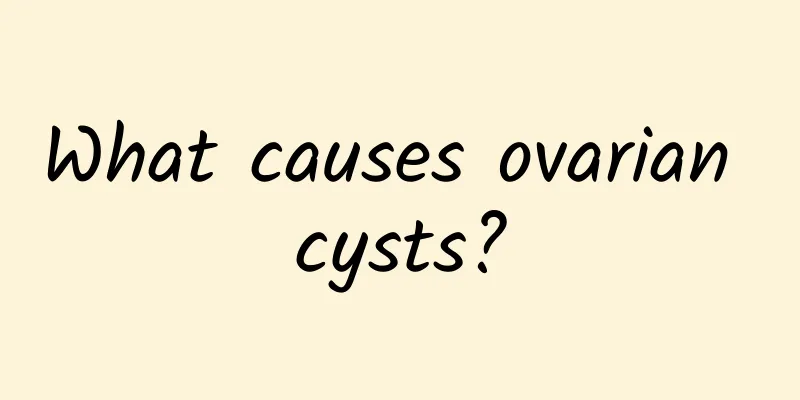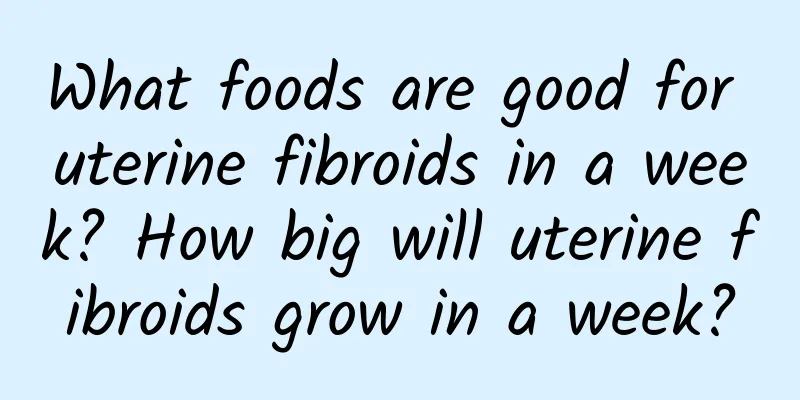What causes ovarian cysts?

|
Ovarian cysts are one of the common gynecological diseases, and the causes of their formation are relatively complex, including genetic factors, endocrine disorders, lifestyle, environmental factors, inflammatory stimulation, etc. The specific analysis is as follows: 1. Genetic factors: The occurrence of some ovarian cysts is related to heredity. If there are relatives in the family with ovarian cysts, the individual's risk of the disease may increase. For ovarian cysts caused by genetic factors, the size, shape and growth rate of the cyst need to be closely monitored. If the cyst is small and asymptomatic, regular ultrasound examinations are usually sufficient for observation. If the cyst is large or has a tendency to become malignant, surgical treatment, such as ovarian cystectomy, may be required. 2. Endocrine disorders: Imbalanced hormone levels in the body, especially excessive secretion of estrogen, may stimulate abnormal proliferation of ovarian tissue and form cysts. Adjusting the endocrine system is the key. This may include improving lifestyle, such as maintaining a regular schedule, reducing stress, and eating a balanced diet. For patients with severe hormone imbalance, drug treatment may be required, such as the use of progesterone drugs to adjust hormone balance. If the cyst is large or causes obvious symptoms, surgical treatment is also an option. 3. Lifestyle: Long-term bad living habits, such as smoking, alcoholism, and staying up late, may affect the body's normal metabolism and endocrine function, thereby increasing the risk of ovarian cysts. Changing bad lifestyles is the first measure. Quit smoking and drinking, and ensure adequate sleep. At the same time, have regular gynecological examinations to monitor changes in cysts. Smaller cysts generally do not require special treatment, while larger cysts may require surgery to remove. 4. Environmental factors: Long-term exposure to harmful substances, such as industrial emissions, pesticides, and chemical preparations, may damage ovarian tissue and cause cysts. Avoid contact with harmful substances and strengthen protection. For cysts that have already formed, observation, drug treatment, or surgical treatment should be adopted according to their size, nature, and symptoms. 5. Inflammatory stimulation: If pelvic inflammation affects the ovaries, it may cause inflammatory hyperplasia of ovarian tissue and form cysts. Actively treat pelvic inflammation, usually with antibiotics for anti-infection treatment. For ovarian cysts caused by inflammation, the cysts may gradually shrink or disappear after the inflammation is controlled. If the cyst persists and is large, surgery may be required. Ovarian cysts have various causes, and treatment methods also depend on the specific situation. Regular gynecological examinations, early detection, early diagnosis, and early treatment are crucial for the prevention and treatment of ovarian cysts. |
<<: How many days after a miscarriage is it normal to be clean?
>>: How to confirm ovulation bleeding
Recommend
What complications may soft ovarian cysts cause?
What complications are likely to be caused by sof...
Secondary symptoms of cervical precancerous lesions
Cervical precancerous lesions are relatively comm...
How to treat vaginal candidal infection with medication?
The treatment of common candidal vaginitis is not...
Causes of ectopic pregnancy in women
Among gynecological diseases, ectopic pregnancy i...
What are the characteristics of serous ovarian cysts? Three characteristics should be understood
What are the characteristics of a serous ovarian ...
Dietary issues related to pelvic inflammatory disease
Some female friends will ask the doctor some ques...
Common treatment methods for uterine fibroids Conservative treatment methods for uterine fibroids
Uterine fibroids are a gynecological disease that...
Is it possible to cure cervical precancerous lesions?
When it comes to the treatment of cervical precan...
How to care for hyperprolactinemia
How to care for hyperprolactinemia? High prolacti...
What are the main symptoms of candidal vaginitis?
What are the symptoms of candidal vaginitis? I be...
Corpus luteum destruction is effective in treating ectopic pregnancy
Corpus luteum ablation is an effective method for...
Experts analyze the causes of dysmenorrhea in women
Women often experience dysmenorrhea, which is a h...
The causes of multiple uterine fibroids and the harm of multiple uterine fibroids
What is the cause of multiple uterine fibroids? T...
Will uterine fibroids recur after surgery?
Will uterine fibroids recur after surgical treatm...
Don’t slaughter sheep for metabolic syndrome? Fatal risks creep in
The National Health Administration announced the ...









